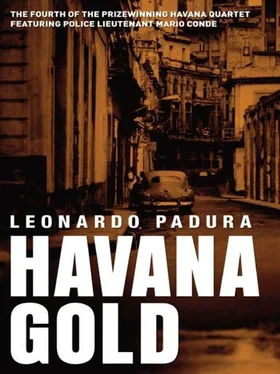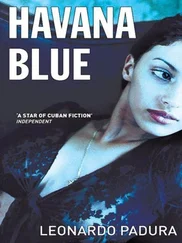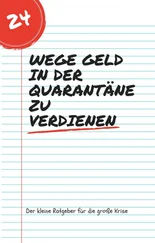
Leonardo Padura
Havana Gold
The fourth book in the Mario Conde Mystery series, 2008
First published in Spanish as Vientos de Cuaresma by Tusquets Editores S.A., Barcelona, 2001
© Leonardo Padura, 2001 English translation © Peter Bush, 2008
For Paloma and Paco Taibo II.
And once more, as ever,
for you, Lucía.
He is the one who knows the mystery and bears witness…
The Koran
It was Ash Wednesday and, eternally punctual, a parched, choking wind swept through the barrio stirring up filth and sorrow, as if sent straight from the desert to recall the Messiah’s sacrifice. Sand from quarries and ancient hatreds stuck to rancour and fear and the rubbish overflowing from bins; the last dry leaves of winter scattered, coated with the stench from the tannery, and the birds of spring vanished as if anticipating an earthquake. The dust cloud smothered the evening light and each act of breathing required a conscious, painful effort.
From the entrance to his house, Mario Conde contemplated his barrio in the wake of that apocalyptic storm: empty streets, closed doors, cowering trees, as if ravaged by a cruel, meticulous war, and he thought how behind sealed doors hurricanes of passion might now rage as destructively as the wind on the street. He felt deep within himself the first signs of a predictable attack of thirst and melancholy, also brought on by the hot breeze. He unbuttoned his shirt and walked towards the pavement. He knew his lack of an agenda for that night and the dryness in his throat could be down to a superior a superior power, one able to channel his destiny between infinite thirst and relentless solitude. With the wind blowing in his face, the dust chafing his skin, he accepted that something accursed lurked in the gale from Armageddon that unleashed itself every spring to remind mortals of the ascension of a son of man to the most dramatic of holocausts, far off in Jerusalem.
He took deep breaths until he felt his lungs collapsing under the weight of the dirt and soot, and reckoning he’d paid his dues in suffering to his restless self-torture, he returned to the shelter of his doorway and stripped off his shirt. The parched feeling in his throat now burnt more keenly, while the certainty he was alone had run riot and was trickier to trace to any particular corner of his body. It flowed unchecked, as if coursing through his veins. “You’re always bloody remembering”, his friend Skinny Carlos constantly told him: Lent and loneliness inevitably meant he remembered. That wind brought to the surface the black sands and detritus in his memory, brittle leaves of dead loves and bitter odours of guilt, with an intensity more perverse than forty days in the desert. Fuck this wind, he muttered, resolving not to wallow further in his melancholy, because he knew the antidote – a bottle of rum and a woman, the more whorish the better – was the perfect, instant cure for a depression that couldn’t decide whether it was located in his soul or in his skin.
The rum was a possibility, even within the bounds of the law, he thought. The challenge was to combine it with that likely woman he’d met three days ago who was now prompting an undertow of hope and frustration. It had all started on Sunday, after lunch at Skinny’s – who was no longer Skinny – which confirmed that Josefina was in league with Lucifer. Only that butcher with the infernal nickname could foster the sin of gluttony where his friend’s mother plunged them: incredible but true, an almost hundred-per-cent Madrid-style stew, the dame explained, summoning them to the dining room where bowls of stew were already in place, as was a platter, circumspect yet full of promise, overflowing with chunks of meat, juicy titbits and chickpeas.
“My mother was from Asturias, but always cooked her stews Madrid-style. A matter of taste, you know? But the downside is that along with the salted pigs’ trotters, piece of chicken, bacon, sausage, black pudding, potatoes, greens and chickpeas, it should also contain green beans and a cow’s knee-bone, which were the only things I couldn’t get. Even so, it tastes good, you must agree?” she asked rhetorically, pleased by the sincere astonishment on the faces of her son and the Count, who flung themselves at the meal, agreeing from the first spoonful: yes, it tasted good, despite lacking the refinements lamented by Josefina.
“Bloody great,” said one.
“Hey, leave some for the others,” warned the other.
“You cunt, that chorizo was mine,” protested the former.
“I’m fit to burst,” confessed the latter.
After such an extraordinary lunch, eyes shut, arms weighing a ton and clamouring physically for bed, Skinny was nonetheless set on sitting in front of the television and enjoying his dessert: a double hitter of baseball. The Havana team was at last playing decently, and the scent of victory riveted him to every game his team played, even when it was only broadcast on the radio. He followed the progress of the championship with a loyalty that could only be displayed by an unredeemed optimist like himself, despite the fact they’d not won a thing since that distant year of 1976 when even baseball players seemed more romantic, genuine and happy.
“I’m fucking off,” said the Count, after a yawn that shook his whole body. “And don’t build your hopes up too high, savage: this lot fouls up and loses the big games – remember last year.”
“It’s like I always said, you beast, I love you like this: so enthusiastic and spirited…” and he wagged his index finger at him. “You’re a scabby bastard. But this year we are going to win.”
“All right, if you think so, but don’t say I didn’t warn you… In any case, I’ve a report to write that I keep putting off till tomorrow. Just remember I’m a proletarian…”
“Fuck off. Today’s Sunday. Look, my boy, Valle and the Duke are pitching today, it’s a piece of cake…” he added, looking at him questioningly. “You liar. You’ve got something else in mind.”
“If only,” sighed the Count, who hated placid Sunday afternoons. He’d always thought the best metaphor his writer friend Baby Face Miki had ever coined was the one about being queerer than a languid Sunday afternoon. “If only,” he repeated, and stood behind the wheelchair where his friend had existed for almost ten years, steering him into the living room.
“Go on, why not buy a bottle and spend tonight here?” suggested Skinny Carlos.
“I’m skint, you savage.”
“Take some money from my bedside table.”
“Hey, I’ve got to be in work early in the morning,” the Count faked a protest, following the route marked out by his friend’s threatening finger to the whereabouts of the money. His yawn changed into a smile and he recognized there was no way out: I might as well give up, right? “Well, I don’t know. I’ll see if I can come tonight. If I can find some rum,” still fighting his corner, trying to save a scrap of his dignity that was under siege. “I’m off downtown.”
“Don’t buy home-made gut-rot,” Carlos warned and the Count shouted from the passageway: “Orientales for champions!” And scarpered to avoid insults he well deserved.
He went out into the steaming early afternoon, blearyeyed, weighing up the options. I’m right, he thought, balancing duty against peremptory bodily needs: fully aware a verdict had already been delivered in favour of a siesta as Madrid-style as the stew, he muttered, “The report or bed?” as he went round the corner to get back to the 10 October Highway. And he imagined her before she actually come into view.
Читать дальше












